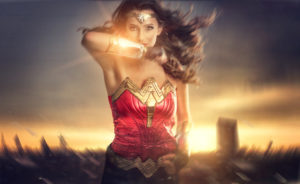 In my last article, I introduced you to the Maryland Counseling Association (MCA). They recently held their annual conference presenting topics to stimulate courageous conversations. I was able to attend this year’s event, celebrating 50 years of the association. The opening keynote, presented by Dr. Rich Feller, was about “Finding Self in Career Development”.
In my last article, I introduced you to the Maryland Counseling Association (MCA). They recently held their annual conference presenting topics to stimulate courageous conversations. I was able to attend this year’s event, celebrating 50 years of the association. The opening keynote, presented by Dr. Rich Feller, was about “Finding Self in Career Development”.
Picking up where I left off, at the conference was able to meet with the current President of the Maryland Career Development Association (MCDA), Sabira Vohra. MCDA is a division of the Maryland Counseling Association (MCA). Their mission is to promote a forum where career professionals network and share resources to ensure the quality of career services. I am an active member of the association, serving as the President from 2013 – 2014. The next MCDA annual conference will be April 12 – 13, 2018. You can visit the website for more information.
Throughout the day there were various presentations such as “Female Anger – the Good, the Bad and the Ugly!”, “Talking with Children About Race” and “Working With Immigrant Youth”. However, the workshop that caught my attention was “Feminist Psychology and The Amazonian Mystique”.
Presenting this workshop was Dr. Cheryl Fisher, Affiliate Faculty at Loyola University in Maryland. Can you guess who the concept of the Amazonian Mystique was developed around? If you are a fan of the Marvel comic book series, you probably know the right answer – Wonder Woman.
As a young child, I watched the old TV episodes of Wonder Woman with Lynda Carter in the starring role. I have also seen the recent film version starring Gal Gadot. I am a fan of the comic but did not realize there are so many studies focusing on the impact of Wonder Woman on gender and cultural identity. As described by Dr. Fisher:
“Wonder Woman is an icon of beauty, physical strength and moral character. Her conception in 1941 took her from the Amazonian haven of Paradise Island to the land of patriarchy as she commits to help humans end violence and suffering. From her 1940’s pin-up presence to her 1970’s Lynda Carter TV series, and the more recently released movie, Wonder Woman continues to wrestle with injustice.”
The evolution of Wonder Woman and what she has come to represent is an interesting one. Despite some seeing her as a symbol of power, some studies pay close attention to how her creators chose to dress her. Some go so far as to say she was fashioned after fantasies and unfilled desires.
In her storyline, Wonder Woman was created from a mold of clay. Her image is one that reflects a certain image of beauty and mystique. What if Wonder Woman was made in the image of an Asian or African American woman? Would she still be as popular as she is today? These were just some of the points of discussion.
During the workshop, attendees were divided into small groups to discuss their definition of a Wonder Woman. When brought together as a whole group again to share what words came to mind, you found words such as non-judgmental, strong yet compassionate, visionary, and more. How has this image of what Wonder Woman shaped the young woman during their childhood? What are the perceptions men have around this topic?
The interesting part of this workshop was, no men where present during our discussion. It would have been great to hear a male perspective on the studies and issues surrounding them. As the host of a podcast, I want to continue the conversation. I will be interviewing Dr. Fisher on the podcast, “Let’s Coach with Carolyn” on an upcoming episode. To present the male perspective, I will be inviting a few of my colleagues to join us for the show.
Walking into the workshop, I was skeptical thinking it would be boring with very little discussion. When the time was up, we were still deep in the conversation. The topic remains a hot one and is a great conversation for women’s conferences as well as events focusing on gender differences.
Two very powerful presentations I attended and the conference wasn’t over yet. From conversations of privilege and the creation of needed non-profits to fat oppression and liberation, there was much more to come. In my next article, I will share even more about the courageous conversations that took place during the 2017 Maryland Counseling Association Conference. Hopefully, it will encourage you to have some courageous conversations of your own!
